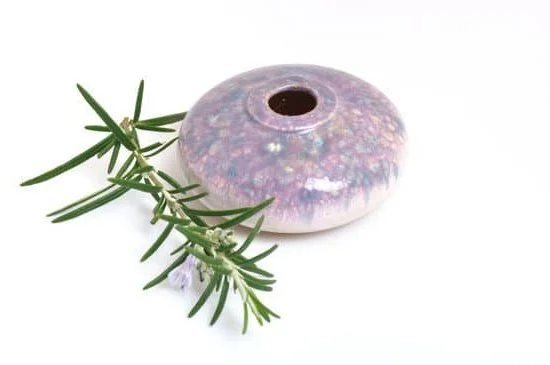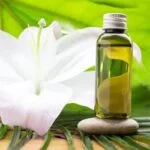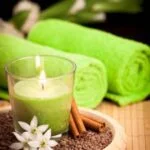Are aromatherapy diffusers bad for you? This is a question that has sparked a lot of discussion and debate in recent years. Aromatherapy diffusers have gained significant popularity as people seek natural remedies for relaxation, stress relief, and to enhance their overall well-being.
However, concerns have been raised about the potential health effects of using these devices. In this article, we will delve deeper into the world of aromatherapy diffusers, exploring their different types and how they work to disperse essential oils. We will also discuss the positive benefits of aromatherapy and address any potential risks and concerns associated with their usage.
Aromatherapy diffusers are devices specifically designed to disperse essential oils into the air. These diffusers come in various forms such as ultrasonic diffusers, nebulizing diffusers, heat diffusers, and evaporative diffusers. They work by breaking down essential oils into tiny particles that are then released into the air in a mist or vapor form. The idea behind this process is that when these tiny particles are inhaled or absorbed through the skin, they can provide various therapeutic benefits.
Many people turn to aromatherapy as an alternative way to promote relaxation, reduce stress levels, improve sleep quality, alleviate pain, and enhance mood. The use of essential oils in conjunction with aromatherapy diffusers has been found to be effective in achieving these desired outcomes. However, it is important to note that while aromatherapy can have positive effects on emotional well-being, it is not a substitute for medical treatment or professional advice.
Throughout this article, we will examine both the benefits and potential risks associated with using aromatherapy diffusers. We will look at common concerns such as allergic reactions and respiratory issues that may arise from exposure to certain essential oils.
It is crucial to understand the chemical composition of essential oils and how using pure, high-quality oils can make a difference when it comes to your health. Additionally, we will explore the impact of diffusing essential oils on indoor air quality and potential effects on respiratory health.
Stay tuned as we provide you with safe usage guidelines and alternative methods for enjoying aromatherapy. By the end of this article, you will have a comprehensive understanding of the topic and be able to make an informed decision regarding the safety of aromatherapy diffusers. Are they truly bad for you? Let’s find out together.
What Are Aromatherapy Diffusers
Aromatherapy diffusers have become increasingly popular as people seek natural methods to promote relaxation, stress relief, and emotional well-being. But what exactly are aromatherapy diffusers and how do they work to disperse essential oils? Aromatherapy diffusers are devices designed to release the aroma of essential oils into the air, allowing individuals to experience the therapeutic benefits of these oils through inhalation.
There are several types of aromatherapy diffusers available on the market. One common type is a nebulizing diffuser, which uses a motorized pump to disperse essential oil particles into the air. This method does not require water or heat, making it ideal for those who want to experience the full potency and purity of essential oils.
Another type is an ultrasonic diffuser, which combines essential oils with water in a chamber that generates ultrasonic vibrations. These vibrations break down the mixture into a fine mist that is then released into the air for inhalation.
Heat diffusers, such as candle diffusers or electric heat pads, use heat to warm essential oils and release their aroma into the surrounding environment. This method may alter the chemical composition of some essential oils and reduce their therapeutic properties. Lastly, there are also evaporative diffusers that use a fan or airflow to allow essential oil molecules to slowly evaporate from a pad or device.
Regardless of the type of aromatherapy diffuser being used, it is important to follow proper usage instructions provided by the manufacturer for optimal results and safety. Different types of diffusers offer various levels of aroma diffusion and coverage area, so it is important to choose one that suits individual preferences and needs.
The Benefits of Aromatherapy
Aromatherapy has gained significant popularity in recent years, with increasing numbers of individuals using essential oils and diffusers to enhance their well-being. The benefits of aromatherapy are numerous, and the use of essential oils and diffusers can have positive effects on relaxation, stress relief, and emotional well-being.
One of the main benefits of aromatherapy is its ability to promote relaxation. Certain essential oils, such as lavender and chamomile, have calming properties that can help to reduce anxiety and induce a state of relaxation. Using an aromatherapy diffuser allows these oils to be dispersed into the air, creating a soothing environment that can be beneficial for both mental and physical relaxation.
In addition to relaxation, aromatherapy is also known for its stress-relieving properties. When used in combination with techniques such as deep breathing or meditation, certain essential oils can help to alleviate stress and promote a sense of calm. Oils such as bergamot and ylang-ylang are commonly used for their stress-reducing effects and can be easily incorporated into a daily routine through the use of an aromatherapy diffuser.
Emotional well-being is another area where aromatherapy can have a positive impact. Essential oils such as rose or jasmine have been shown to improve mood and uplift spirits. Diffusing these oils in the home or workplace can create a more positive atmosphere and contribute to overall emotional balance.
Overall, the use of aromatherapy diffusers with high-quality essential oils can provide numerous benefits for relaxation, stress relief, and emotional well-being. It is important to note that individual responses may vary when it comes to aromatherapy, so experimentation with different scents may be necessary to find what works best for each individual’s needs.
| Benefit | Essential Oils |
|---|---|
| Relaxation | Lavender, Chamomile |
| Stress Relief | Bergamot, Ylang-Ylang |
| Emotional Well-being | Rose, Jasmine |
Potential Risks and Concerns
Aromatherapy diffusers have gained significant popularity in recent years, as people seek natural and holistic approaches to wellness. However, there are concerns about the safety of these devices and their potential effects on health. In this section, we will address common concerns related to using aromatherapy diffusers, such as allergic reactions and respiratory issues.
Allergic Reactions
One of the primary concerns associated with aromatherapy diffusers is the possibility of allergic reactions. Essential oils are highly concentrated plant extracts that contain various chemical compounds. Some individuals may be allergic or sensitive to certain oils or specific components within them.
It’s essential to identify any allergies or sensitivities before using an aromatherapy diffuser. Conducting a patch test by applying a small amount of diluted essential oil to a small area of the skin can help determine if an allergic reaction occurs. If any redness, itching, or discomfort arises, it’s best to avoid using that particular oil.
Respiratory Issues
Another concern is the potential impact of essential oils on respiratory health, especially for individuals with pre-existing respiratory conditions such as asthma or chronic obstructive pulmonary disease (COPD). Certain volatile organic compounds (VOCs) found in some essential oils can trigger respiratory symptoms in susceptible individuals.
To mitigate the risk of respiratory issues when using an aromatherapy diffuser, it’s crucial to choose essential oils that are considered safe for inhalation and use proper dilution methods. Additionally, ensuring proper ventilation in the room where the diffuser is being used can help minimize any potential adverse effects on respiratory health.
It’s also important to note that everyone’s sensitivity level may vary. What might cause discomfort or breathing difficulties for one person may not affect another individual at all. Taking personal factors into account and monitoring how your body responds to specific essential oils can help determine what works best for you.
By being aware of potential risks and concerns associated with aromatherapy diffusers, individuals can make informed decisions and take necessary precautions to ensure safe usage. It’s always advisable to consult a healthcare professional if you have any underlying health conditions or concerns before incorporating aromatherapy into your wellness routine.
Chemical Composition of Essential Oils
Potential Hazards of Certain Essential Oils
When considering the question “Are aromatherapy diffusers bad for you?”, it is important to understand the potential hazards associated with certain essential oils. While essential oils are generally considered safe when used properly, some oils can have negative effects on certain individuals. For example, citrus-based oils like lemon or orange may cause photosensitivity and skin irritation when applied topically.
In addition, some essential oils can be toxic if ingested or used in excessive amounts. Oils such as wintergreen, eucalyptus, and camphor contain high levels of potentially harmful compounds and should be used with caution. It is crucial to always follow the recommended guidelines for dilution and usage provided by reputable sources when using essential oils.
The Importance of Using Pure, High-Quality Oils
To ensure the safety of aromatherapy diffusers, it is vital to use pure and high-quality essential oils. The purity and quality of an oil can greatly impact its effectiveness and potential health risks. Pure oils are derived directly from plants without any additives or synthetic ingredients, making them less likely to cause adverse reactions.
It is recommended to look for essential oil brands that provide transparency regarding their sourcing and manufacturing processes. Labels should indicate that the oil is 100% pure and free from any contaminants. Using adulterated or low-quality oils not only diminishes the therapeutic benefits but also increases the risk of allergic reactions or respiratory issues.
Investing in pure, high-quality oils may cost more upfront but ensures a safer and more enjoyable aromatherapy experience in the long run.
Cautions for Specific Populations
While most individuals can safely use aromatherapy diffusers with proper precautions, there are specific populations that should exercise extra caution when using certain essential oils. Pregnant women, children, elderly individuals, and those with pre-existing medical conditions should consult with a healthcare professional before incorporating aromatherapy into their routine.
Some essential oils can cause hormonal imbalances or trigger contractions in pregnant women, while children and the elderly may be more sensitive to certain oils. People with respiratory conditions like asthma or allergies may also need to approach diffuser usage cautiously, as some oils can exacerbate symptoms.
Understanding the Role of Air Quality in Diffuser Usage
The air quality in our homes and workplaces can have a significant impact on our overall health and well-being. With the rising popularity of aromatherapy diffusers, it’s important to understand the role they play in indoor air quality and the potential effects on respiratory health.
Aromatherapy diffusers work by dispersing essential oils into the air, filling the space with pleasant scents. This can create a soothing and relaxing environment, promoting emotional well-being and stress relief. However, it is important to note that not all essential oils are safe to diffuse, as some may have adverse effects on respiratory health.
Certain essential oils contain compounds that can irritate the respiratory system when inhaled in high concentrations or for prolonged periods. Common symptoms of respiratory irritation include coughing, wheezing, shortness of breath, and chest tightness. People who already have respiratory conditions such as asthma or allergies may be more sensitive to these irritants.
To ensure a safe experience with aromatherapy diffusers, it is crucial to use pure, high-quality essential oils that are specifically approved for diffusion. Cheap or synthetic versions of essential oils may contain harmful chemicals that can further aggravate respiratory issues. It is also recommended to dilute the essential oil with water before diffusing to reduce its potency.
While diffusing essential oils can enhance indoor air quality by reducing odors and purifying the air, it is important to do so in moderation. Overuse or prolonged exposure to strong scents can overload our olfactory senses and potentially lead to headaches or nausea. Additionally, it’s advisable to limit diffusion time in rooms where individuals with respiratory conditions spend a significant amount of time.
Safe Usage Guidelines
Aromatherapy diffusers have become increasingly popular for their ability to disperse essential oils and create a relaxing atmosphere. However, it is important to use these devices safely to minimize potential risks. By following some simple guidelines, you can enjoy the benefits of aromatherapy while ensuring your well-being.
1. Choose the right location: When using an aromatherapy diffuser, it is important to place it in a well-ventilated area. This will help prevent the buildup of essential oil vapors in a confined space, which could cause respiratory irritation or other health issues. Avoid placing the diffuser near your face or directly on your skin.
2. Dilute essential oils properly: Some essential oils can be irritating or even harmful when used undiluted. Before using them in a diffuser, make sure to dilute them according to the manufacturer’s instructions or consult with a certified aromatherapist. Using too much undiluted oil can result in allergic reactions or skin sensitization.
3. Limit exposure time: It is recommended not to run an aromatherapy diffuser continuously for more than 30-60 minutes at a time. Extended exposure may overwhelm your senses and potentially lead to headaches or nausea. Take breaks between diffusing sessions and observe how your body responds to the scents.
4. Keep diffuser and oils out of reach of children and pets: Essential oils are highly concentrated substances that should be handled with care. Keep both the diffuser and essential oils stored safely out of reach of children and pets to avoid accidental ingestion or spills.
5. Use high-quality essential oils: To ensure the safety of aromatherapy diffusion, always choose pure, high-quality essential oils from reputable sources. Low-quality oils may contain synthetic additives or impurities that can have negative effects on your health.
By following these safe usage guidelines, you can effectively enjoy the benefits of aromatherapy without worrying about potential risks. Remember to always use common sense and listen to your body’s response when using essential oils and diffusers.
Alternatives to Diffuser Usage
While aromatherapy diffusers are a popular way to enjoy the benefits of essential oils, there are alternative methods for incorporating aromatherapy into your daily routine. These alternative methods provide different ways to experience the therapeutic effects of essential oils and can be a suitable option for individuals who prefer not to use diffusers or have concerns about their safety.
One alternative method is topical application, which involves applying diluted essential oils directly onto the skin. This method allows the oils to be absorbed through the skin and into the bloodstream, where they can exert their beneficial effects.
To use this method, it is important to properly dilute the essential oils with a carrier oil, such as coconut oil or almond oil, to avoid skin irritation. Popular areas for topical application include pulse points like wrists and temples, as well as areas of muscle tension.
Another alternative method is using natural scented candles infused with essential oils. These candles provide a soothing ambiance while releasing fragrance from the essential oils when lit. When choosing scented candles, make sure that they are made with all-natural ingredients and do not contain synthetic fragrances or harmful chemicals. Look for candles made with 100% soy wax or beeswax and scented with pure essential oils only.
Some other alternatives to diffuser usage include making DIY room sprays by combining water and a few drops of your favorite essential oils in a spray bottle, or using aroma jewelry such as diffuser necklaces or bracelets that allow you to carry your chosen scent with you wherever you go.
It’s important to note that everyone’s preferences and sensitivities are different when it comes to aromatherapy. What may work well for one person may not work for another. It may take some trial and error to find the method that works best for you. Whether you choose to use a diffuser, try topical application, or enjoy natural scented candles, the most important thing is to listen to your body and find what brings you relaxation and well-being.
Conclusion
In conclusion, it is evident that aromatherapy diffusers have gained popularity due to the numerous benefits they offer in terms of relaxation, stress relief, and emotional well-being. While there are potential risks and concerns associated with their use, such as allergic reactions and respiratory issues, these can be minimized by following safe usage guidelines.
One of the key factors to consider when using aromatherapy diffusers is the chemical composition of essential oils. It is important to ensure that you are using pure, high-quality oils to avoid any potential hazards. Certain essential oils may have adverse effects on some individuals, so it is crucial to be aware of any allergies or sensitivities before using them.
Another aspect to take into account is the impact of diffusing essential oils on indoor air quality and respiratory health. While diffusers can improve the ambiance of a space and provide a pleasant aroma, it is important to maintain proper ventilation and monitor how your body responds to the dispersed oils. If you experience any discomfort or respiratory issues, it may be necessary to reduce usage or try alternative methods for enjoying aromatherapy.
Frequently Asked Questions
Is It Safe to Breathe in Essential Oils From a Diffuser?
Breathing in essential oils from a diffuser is generally considered safe when used properly. However, it’s important to exercise caution and follow safety guidelines. Essential oils are highly concentrated plant extracts that can have potential risks if not used correctly.
Some individuals may be more sensitive to certain oils and may experience minor respiratory irritation or allergic reactions. It’s recommended to dilute the essential oils properly, use them in well-ventilated areas, and avoid continuous exposure for long periods of time. It’s also important to choose high-quality, pure essential oils from reputable sources to minimize any potential risks.
What Are the Side Effects of Aromatherapy Diffusers?
The side effects of aromatherapy diffusers are usually mild and can vary depending on the individual and the specific essential oil being used. Some common side effects can include headaches, dizziness, nausea, or skin irritation in certain cases. These side effects are often temporary and subside once the exposure to the scent is reduced or discontinued.
However, it’s worth noting that certain individuals with pre-existing conditions such as asthma or allergies may be more susceptible to adverse reactions. It’s always advisable to consult with a healthcare professional before using aromatherapy diffusers if you have any underlying health concerns.
Do Diffusers Have Harmful Chemicals?
Diffusers themselves do not typically contain harmful chemicals as they are designed to disperse essential oils into the air without altering their chemical composition significantly. However, it’s important to note that the quality of the essential oils being used can greatly affect their safety profile.
Some commercially available essential oils may contain synthetic additives or low-quality ingredients that could potentially pose health risks when vaporized and inhaled through a diffuser. To ensure safety, it is recommended to choose pure essential oils from reputable manufacturers who provide detailed information about their sourcing methods and testing procedures to guarantee purity and authenticity.

Are you looking for a natural way to improve your health and wellbeing?
If so, aromatherapy may be the answer for you.





